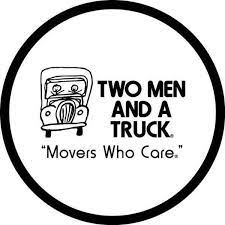|
|
|
Licensed
Insured
Price
|
St. Paul, MN to Miami, FL Movers (NEW 2026 Costs)
Quick answer: Moving from St. Paul to Miami typically costs $3,400–$7,200 with full-service movers for a 2–3 bedroom home (about 1,781 miles). Use our moving cost calculator below to get an instant estimate.
Cost to move from St. Paul to Miami
Moving from St. Paul, MN to Miami, FL typically costs $3,400–$7,200 with full-service movers for a 2–3 bedroom home.
The price ranges below are estimates for a 1,781-mile move from St. Paul to Miami, based on moveBuddha pricing data as of Feb 24, 2026. Pricing is updated monthly to reflect seasonality and market changes.
Studio / 1 bedroom
|
2-3 bedrooms
|
4+ bedrooms
|
Recent moving quotes for similar moves
- Mayzlin Relocation recently quoted $4,704 for a 2 bedroom using professional movers.
- United Van Lines recently quoted $7,815 for a 5+ bedroom using professional movers.
- Budget Truck Rental recently quoted $1,527 for a 5+ bedroom using a rental truck.
Factors that impact moving costs from St. Paul to Miami
Your total cost will depend on:
- The size of your move: Costs rise with more belongings. A small one-bedroom move can start at $2,400, but larger homes can run up to $10,500.
- Seasonal timing: Demand peaks in summer — expect premium rates during moving season in St. Paul.
- Whether you hire pros or do it yourself: Choosing DIY with a truck ($1,100–$3,000) is cheaper, though tougher, than using movers.
Moving the opposite route? We got you covered with our moving from Miami, FL to St. Paul, MN guide.
Best St. Paul to Miami movers by type
|
Professional
|
Local
|
Container
|
Rental Truck
|
Labor Only
|
Best professional movers from St. Paul to Miami
For a stress-free interstate move from St. Paul to Miami, selecting a full-service mover is a wise choice. These professionals cover all aspects of the move, freeing you to focus on the excitement of your new adventure.
Want a deeper breakdown of the top long-distance movers? See our best interstate movers guide.
- Safeway Moving: 4.9 out of 5 stars
- American Van Lines: 4.9 out of 5 stars
- Allied Van Lines: 4.2 out of 5 stars
- Mayzlin Relocation: 4.8 out of 5 stars
- North American Van Lines: 4.8 out of 5 stars
How we chose the best MN→FL movers
Our team at moveBuddha evaluated moving rates from 50 Minnesota moving companies, highlighting the top options based on client feedback, reviews, and pricing.
- Customer satisfaction (40%): Services are delivered promptly, with excellent communication, and at the cost initially quoted.
- Dispute resolution (20%): Problems sometimes come up during moves. We favor companies that admit faults and focus on making things right for the customer.
- Industry reputation (15%): Known for its positive standing, the company is respected in the moving industry and contributes through conferences and memberships.
- Online reputation (15%): The company maintains a professional website with accurate information and responds to online customer inquiries promptly and courteously.
- Service options (10%): Movers that offer a wide range of services — from packing and storage to specialty handling and fast delivery — rank higher in our evaluations.
Here is our full moving company rating methodology.
What to know before moving from St. Paul to Miami
Expect a bump in monthly expenses after the move – Miami runs about -15% higher for singles and 74% higher for families than St. Paul.
Singles spend around $3,103 in Miami versus $3,633 in St. Paul; families pay $7,450 compared with $4,290.
Dig into the side-by-side details here:
| St. Paul | Miami | |
|---|---|---|
| Average 1 BR rent | $2,885 | |
| Average 3 BR rent | $5,240 | |
| Average home value | $278,221 | $579,925 |
| Average income (per capita) | $63,483 | $54,858 |
| Cost of living (single) | $3,633 | $3,103 |
| Cost of living (family of four) | $4,290 | $7,450 |
| Unemployment rate | 4.9% | 8.3% |
| Sales tax | 9.88% | 7.0% |
| State income tax | 9.85% | 0.0% |
- As you consider relocating to Miami, note that rent can be roughly 121% more expensive than it is in St. Paul; adjust your financial plans to accommodate this change.
- Be sure to budget for a higher monthly mortgage payment, as home prices are about 108% higher in Miami than in St. Paul.
- It’s important to evaluate your finances first. The average income is around 14% less in Miami than in St. Paul.
- Anticipate lower daily expenses, including food, gas, and utilities in Miami, where the cost of living for a single person is 15% less than in St. Paul.
- If your journey leads to Miami, be prepared for higher living expenditures. The cost of living for a family in Miami is 74% more than it is in St. Paul.
- The unemployment rate in Miami is 69% higher compared to St. Paul, translating to more job seekers for available positions, which might elevate competition.
- Sales taxes are 29% lower in Miami than in St. Paul. If you have a larger family or higher consumption habits, the lower sales tax in Miami can reduce your overall living expenses.
- Florida has no income tax, meaning you keep more of your gross income, which can be a major advantage for salaried workers, freelancers, and retirees with taxable income.
The breakdown below shows how typical living costs and monthly expenses line up when comparing St. Paul with Miami:
| Living Expense | St. Paul | Miami |
|---|---|---|
| Basic utilities | $148.61 | |
| Cell phone plan | $67.33 | |
| Dozen eggs | $4.89 | |
| Loaf of bread | $3.89 | |
| Fast-food/casual eatery (one meal) | $25.00 | |
| Dinner for 2 (mid-range restaurant) | $110.00 | |
| Gym membership | $64.40 |
How life is different in St. Paul vs. Miami
| St. Paul | Miami | |
|---|---|---|
| Population | 303,176 | 442,241 |
| Transportation score | 8 | 8 |
| Walkability score | 60 | 77 |
| Bike friendliness score | 64 | 64 |
| Crime index | 50.86 | 52.54 |
| Safety index | 49.14 | 47.46 |
| Air quality | Good | Good |
- Miami’s population is about 46% greater than St. Paul.
- Miami’s public transportation score is within about 5% of St. Paul, making them very similar.
- Miami is more walkable than St. Paul with a score of 77 out of 100 vs St. Paul’s 60 out of 100.
- Both Miami and St. Paul have similar bike-friendliness scores (64 vs 64), meaning Miami is about as safe for cyclists as St. Paul. Typically, cities with scores of 20 or higher are seen as reasonably safe, though higher scores mean better cycling accessibility.
- Miami and St. Paul have a similar crime rate with scores of 52.54 and 50.86, respectively.
- Miami and St. Paul have a similar safety level, with scores of 47.46 and 49.14.
- Air quality in Miami is Good, and in St. Paul it’s Good.
Other things to consider for your St. Paul to Miami move
- HOA rules: It’s a good idea to look into your HOA or community regulations before moving day arrives.
- Elevator reservation: Reserve elevator access early if your building requires it, to avoid delays on moving day.
- Truck parking permits: Some cities require parking permits for large vehicles and moving trucks. Find out if you need any parking permits ahead of time.
- State licensing: Individuals and companies engaging in for-profit local and intrastate moving within the Sunshine State must register each year with the Department of Agriculture and Consumer Services – Division of Consumer Services. Double-check that the moving company is properly licensed before you hire them.
- State regulator: You can verify a Florida moving company’s license by visiting the state’s public utilities commission.
- Moving Permits: While Florida doesn’t mandate moving permits, checking local parking guidelines before your move-in day is still a good idea.
- Change of address: File your USPS change of address about a week before moving so mail reaches Miami smoothly. Start the process here.
- Moving company insurance: Every state requires moving companies to carry different levels of insurance. Released Value Protection stands out as a cost-effective choice, provided by movers at no extra expense, although it comes with limited coverage. In this option, the mover’s liability is capped at 60 cents per pound per article. To ensure comprehensive coverage matching the full value of your items, consult with your chosen moving company about alternative options or explore third-party insurance providers. Secure the best protection for your belongings during the move with these tailored coverage choices.
- Moving checklist: Use our moving checklist to stay on top of every detail and reduce last-minute stress.
Where to live in Miami
Now that you’ve chosen The 305 as your next home, here are a few of the best neighborhoods in Miami to check out.
Best neighborhoods for singles
- Coral Gables
- Brickell
- Little Havana
- Wynwood
Best neighborhoods for families
- Coconut Grove
- Coral Gables
- Kendall
- Key Biscayne
- Pinecrest
Things to do in Miami
After getting comfortable in your new Florida home, it’s time to see what Miami is all about. Whether you’re into food, art, nature, or nightlife — there’s plenty to check out:
- Arts and culture: From historic museums to vibrant art centers, Miami offers cultural landmarks like the Wynwood Walls, Vizcaya Museum and Gardens, Miami Design District, and Phillip and Patricia Frost Museum of Science.
- Outdoor recreation: The city’s Bayfront Park, Tropical Park, Matheson Hammock Park, and Domino Park — among other sites — are great places to hike, ride bikes, or just enjoy nature.
- Sports: Grab a seat and root for the home team during an Miami Dolphins (NFL)Inter Miami CF (MLS)Miami Marlins (MLB)Florida Panthers (NHL)Miami Heat (NBA) game.
FAQ
When is the best time to move from St. Paul to Miami?
The most budget-friendly and comfortable times to move from St. Paul to Miami are in the spring or fall, when the weather is mild and moving rates in St. Paul are lower.
When is the cheapest time to move from St. Paul to Miami?
Because spring and fall moves from St. Paul to Miami are so common, winter can be a great time to move if you’re looking for lower prices. Read our moving discounts guide to see how.
How long does a move from St. Paul to Miami take?
A move of 1,781 miles from St. Paul, MN to Miami, FL generally takes five to 16 days. Movers in St. Paul sometimes provide expedited service, while storage in Miami is a good fallback if you need extra time.
Which discounts can you find from movers in St. Paul?
Plenty of moving companies offer ways to help you save, from seasonal promotions to ongoing deals. In St. Paul, 3 movers provide AAA member discounts. 1 companies offer special pricing for members of the military. 2 extend savings to senior citizens.
Discount types, amounts, and availability can differ, so it’s worth confirming the details with each mover before you book.
Which movers in St. Paul offer piano or antique moving?
Some moving jobs call for extra care and expertise. 28 movers in St. Paul have the skills and equipment for piano transport. 13 specialize in safely moving antiques. Across MN, there are 42 piano movers and 17 antique movers, while nationwide the numbers reach 2,300 and 1,465.
Because not every mover offers these services, ask about specialty experience and insurance coverage when you request quotes.
Helpful moving resources
St. Paul moving services
Popular Minnesota routes
- Minnesota to Florida car shippers
- Minnesota to California movers
- Minnesota to Florida movers
- Minnesota to Georgia movers
- Minnesota to Illinois movers
- Minnesota to Michigan movers
- Minnesota to New York movers
- Minnesota to North Carolina movers
- Minnesota to Ohio movers
- Minnesota to Pennsylvania movers
- Minnesota to Texas movers
- See All Moving Routes
Not what you were looking for?
Check out other categories that can help you find the information you need!























